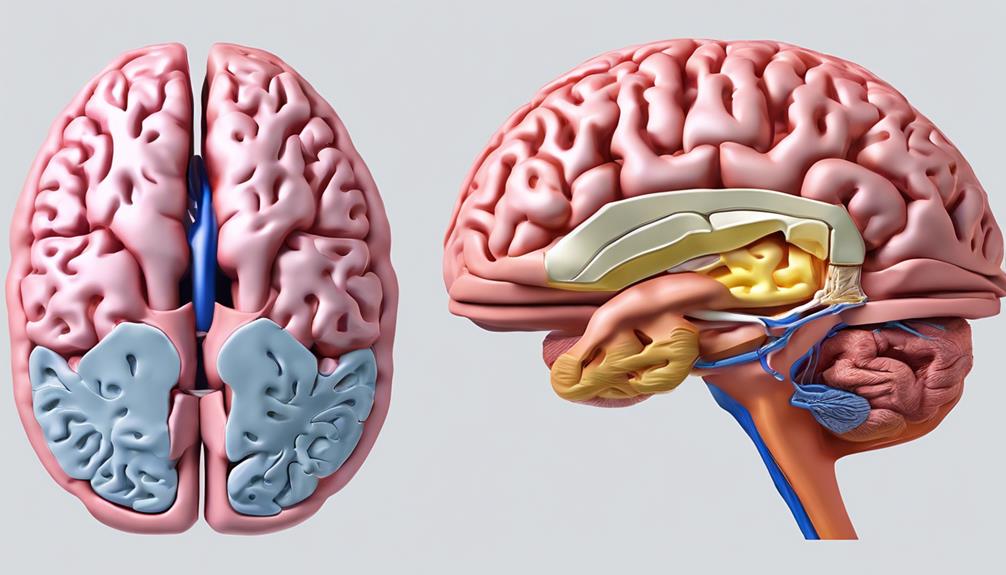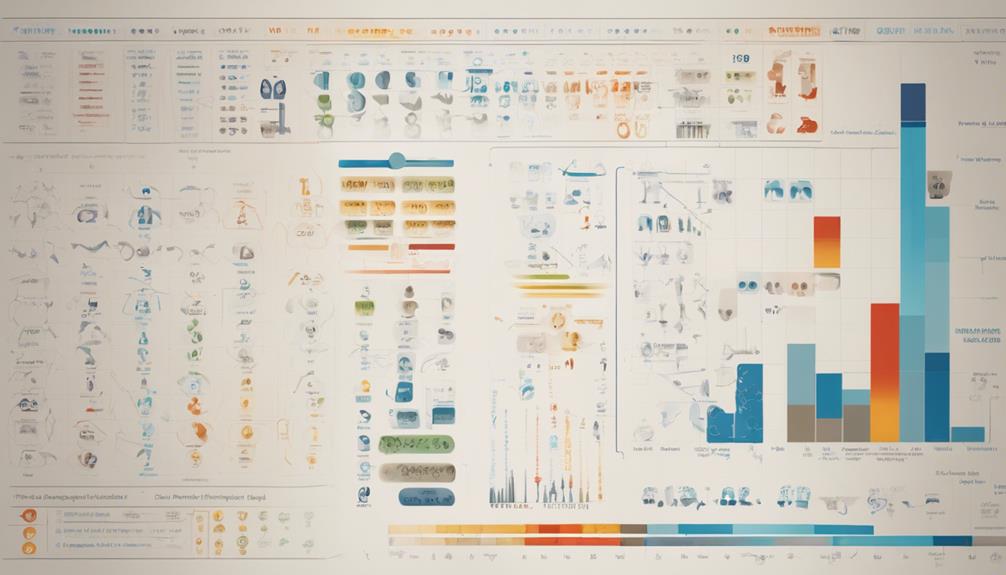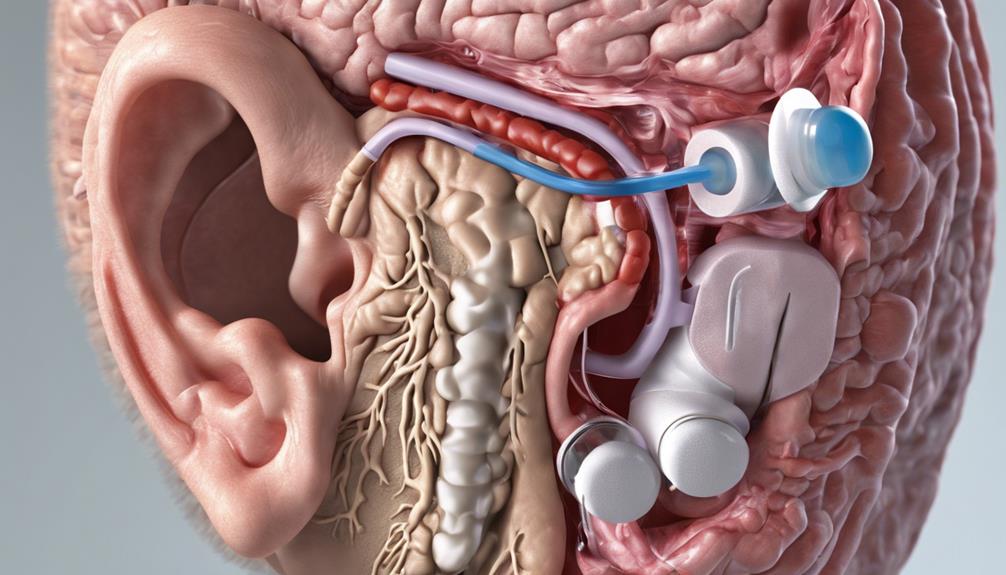Have you ever considered the impact a stroke could have on someone’s hearing abilities? Strokes can have a devastating effect not only physically but also on one’s sensory functions.
Stroke can not only affect our physical abilities but also lead to unexpected consequences like hearing loss.
The intricate relationship between these two seemingly unrelated conditions holds valuable insights that could reshape our approach to post-stroke care.
Understanding how stroke can cause hearing loss opens a doorway to a deeper comprehension of the human body's interconnected complexities, shedding light on the importance of early detection and intervention strategies.
Key Takeaways
- Strokes disrupt blood supply affecting auditory pathways.
- Sudden hearing loss signals increased stroke risk.
- Post-stroke hearing loss impacts communication and recovery.
- Cardiovascular health crucial for preserving auditory function.
Neuroanatomy and Auditory Pathway
The auditory pathway intricately connects the ear to the brain, facilitating the processing of sound signals through key structures such as the cochlear nuclei and auditory cortex. This pathway is crucial for the transmission and interpretation of sound information.
Sound signals captured by the ear travel through the cochlear nerve to the brainstem, where initial processing occurs. The complex neuroanatomy of the auditory pathway allows for the discrimination of various sound frequencies, volumes, and spatial locations, enabling us to perceive and understand the sounds in our environment.
Disruption of this pathway, whether through trauma or conditions like strokes, can result in hearing loss or impairment. Strokes, in particular, can damage areas of the brain involved in sound processing, leading to deficits in auditory perception. Understanding the intricate neural connections and structures involved in the auditory pathway is essential for grasping how strokes and other conditions can impact hearing abilities.
Risk of Hearing Loss in Stroke Patients
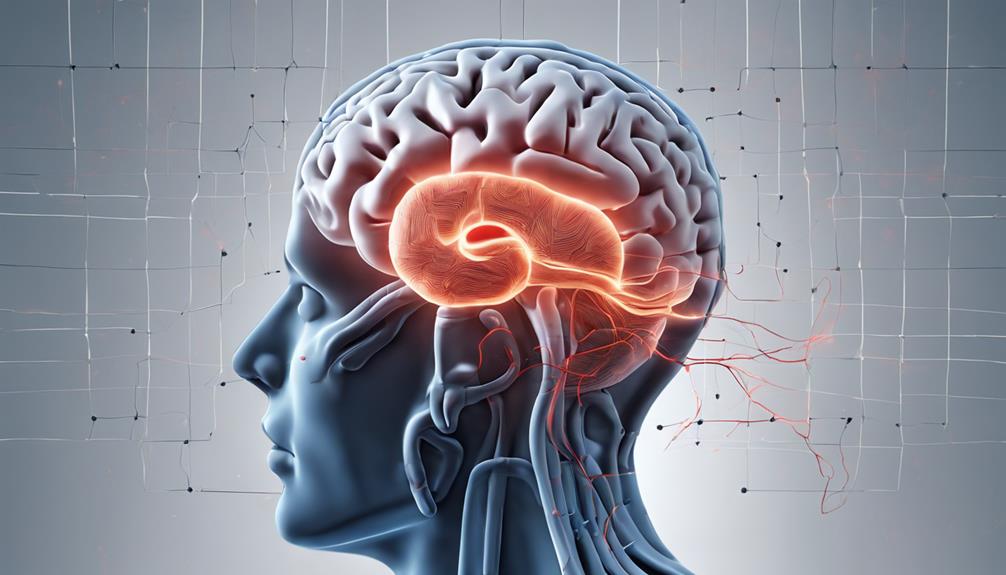
Exploring the heightened risk of sudden sensorineural hearing loss (SSNHL) in stroke patients unveils a significant correlation between stroke events and auditory impairment. Research indicates that stroke patients face a 71% increased risk of experiencing SSNHL compared to those without a history of stroke.
The risk of SSNHL is particularly elevated within the first year post-stroke, especially in patients undergoing steroid therapy. Ischemic stroke patients are observed to have an 80% higher risk of SSNHL compared to individuals who haven't experienced a stroke, whereas hemorrhagic stroke patients don't exhibit a notable difference in risk.
Notably, the administration of steroid therapy during stroke hospitalization is associated with over 5 times the risk of SSNHL. Understanding these risks is crucial for the early identification and proper management of hearing loss in stroke patients, emphasizing the intricate connection between stroke events and the integrity of the auditory system.
Connection Between Hearing Loss and Strokes
A direct correlation exists between hearing loss and strokes, highlighting the intricate interplay between auditory function and cerebrovascular events.
Strokes affecting the brain can lead to disruptions in blood supply, impacting both the ears and brain functions related to hearing.
The sudden onset of hearing loss can serve as an indicator of an increased risk of stroke due to impaired blood circulation.
Cardiovascular health directly influences hearing health, emphasizing the interconnectedness between heart health, strokes, and hearing abilities.
Disruptions in blood supply from strokes can have implications on hearing abilities, affecting sound recognition, especially in the temporal lobe.
The connection between strokes and hearing loss underscores the importance of maintaining good cardiovascular health to preserve auditory function and prevent potential complications.
Sudden Hearing Loss and Stroke Link
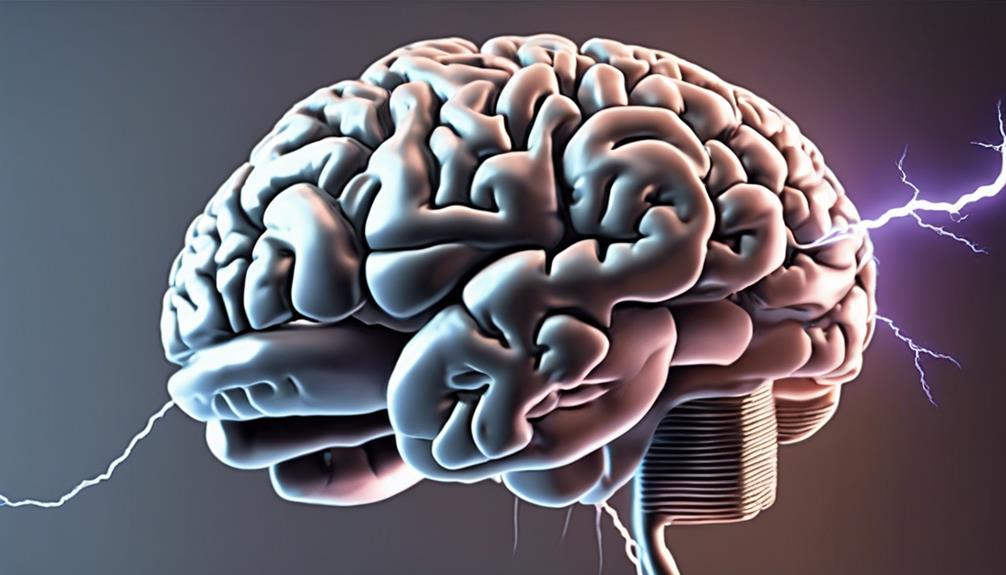
Highlighting a significant association, sudden sensorineural hearing loss (SSNHL) has been identified as a potential precursor to increased stroke risk, a finding underscored by a recent study involving a substantial patient cohort in Taiwan.
The Taiwan study, encompassing 7,115 individuals, unveiled a 1.64 times greater hazard for stroke in patients with SSNHL, even after adjusting for various factors such as gender, income, and medical history.
Of the total population studied, 621 patients encountered a stroke, with 180 of them previously experiencing SSNHL, emphasizing a plausible link between sudden hearing loss and stroke risk.
Researchers advocate for vigilant monitoring of health indicators post-SSNHL, considering that a majority of strokes manifest within two years following the initial hearing loss episode.
Understanding this connection between sudden hearing loss and stroke is crucial for early detection and the implementation of tailored management strategies for individuals at risk of an impending stroke.
Post-Stroke Hearing Loss Implications
Following a stroke, the implications of post-stroke hearing loss on communication and rehabilitation efforts are profound.
- Communication: Post-stroke hearing loss can significantly impact the ability of stroke survivors to effectively communicate, leading to difficulties in social interactions and daily activities.
- Rehabilitation: Hearing impairment post-stroke can impede the progress of rehabilitation programs, affecting the overall recovery and independence of individuals.
- Mortality and Disability: Studies have shown that hearing loss following a stroke is linked to increased mortality rates and higher levels of disability, emphasizing the critical importance of early detection and intervention.
- Auditory Health: Disruptions in blood supply during a stroke can result in lasting auditory issues, highlighting the intricate connection between stroke and auditory health.
Understanding and addressing post-stroke hearing loss promptly is crucial in optimizing the recovery outcomes and quality of life for stroke survivors. Early identification and management of this condition can significantly improve rehabilitation efforts and overall well-being in individuals recovering from a stroke.
Frequently Asked Questions
How Does a Stroke Cause Hearing Loss?
When a stroke occurs, it can disrupt blood flow to the inner ear or damage auditory pathways in the brain, leading to hearing loss.
The delicate hair cells responsible for hearing can sustain permanent damage due to this disruption.
Additionally, areas of the brain crucial for sound recognition, like the temporal lobe, may be affected by a stroke, impacting the interpretation of auditory information and causing lasting hearing impairment.
What Is the Connection Between Hearing Loss and the Brain?
When discussing the connection between hearing loss and the brain, it's essential to recognize the intricate relationship between auditory perception and neural processing.
Our understanding of this link has evolved significantly, revealing how the brain's intricate networks facilitate sound recognition and interpretation.
The brain's ability to decipher auditory stimuli is crucial for our overall comprehension and communication skills.
This connection underscores the complexity and importance of brain function in maintaining optimal hearing capabilities.
How Does a Hearing Impairment Affect You Emotionally?
Experiencing hearing impairment can profoundly affect us emotionally. It may lead to feelings of frustration, isolation, and impact communication in relationships and social interactions. Anxiety, depression, and low self-esteem are common emotional responses to hearing loss.
Coping strategies such as seeking support from loved ones, therapy, or assistive devices are crucial. Addressing the emotional impact of hearing loss is vital for maintaining overall mental health and quality of life.
Can Hearing Loss From a Stroke Be Reversed?
Yes, hearing loss from a stroke can be reversible in some cases. The extent of brain damage and the timeliness of medical intervention are crucial factors.
Rehabilitation strategies like auditory training and hearing aids can aid in improving outcomes. Early detection and management are key for potential recovery and enhancing quality of life.
Collaborative care involving specialists can optimize communication and rehabilitation for stroke survivors with hearing loss.
Conclusion
In conclusion, the connection between stroke and hearing loss is significant, with a 71% increased risk of sudden sensorineural hearing loss in stroke patients. Understanding this link is crucial for early detection and management of hearing impairments post-stroke.
How can we ensure optimal rehabilitation outcomes for stroke patients by addressing their hearing needs promptly? This research sheds light on the importance of recognizing and addressing hearing loss in stroke patients for better quality of life.

